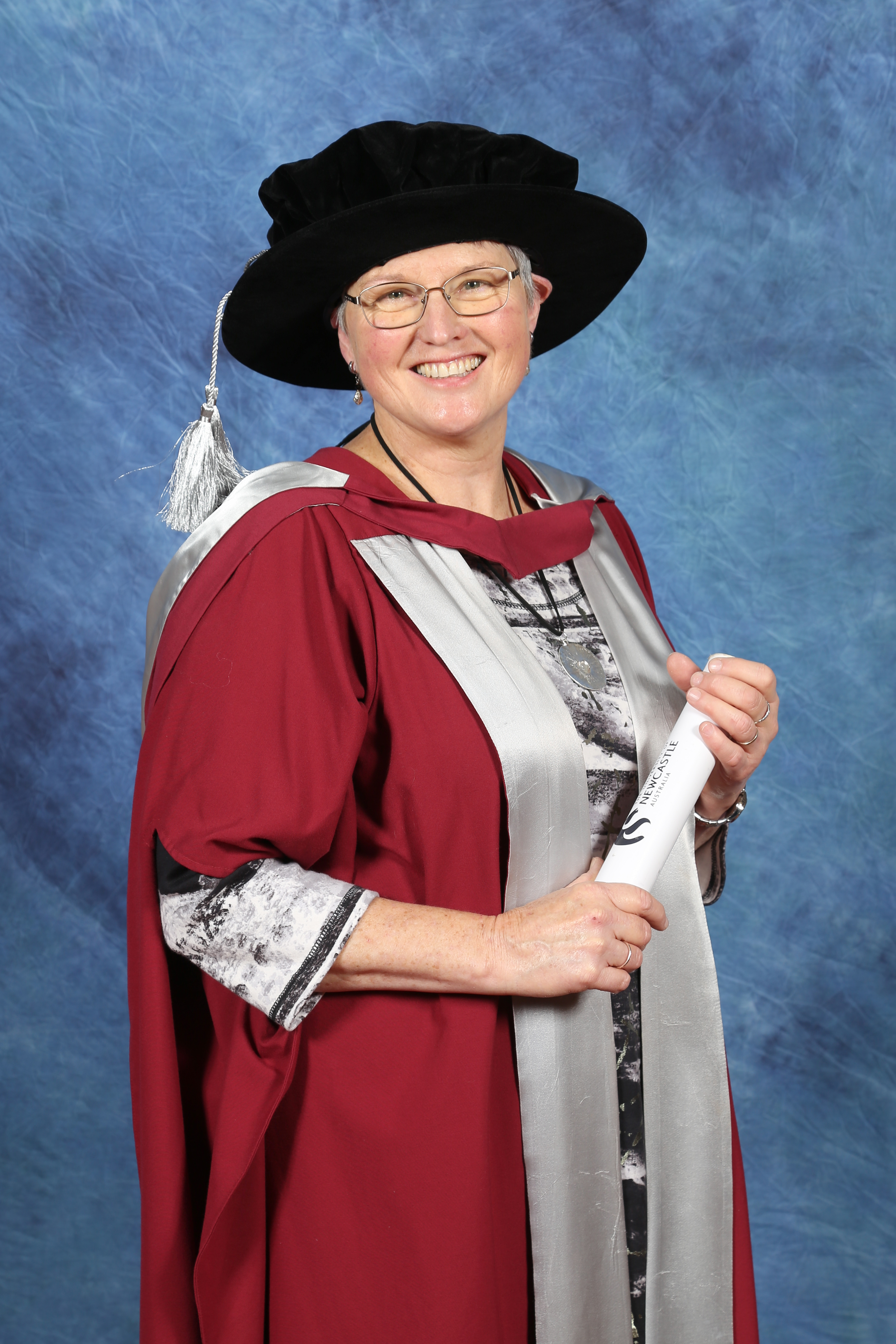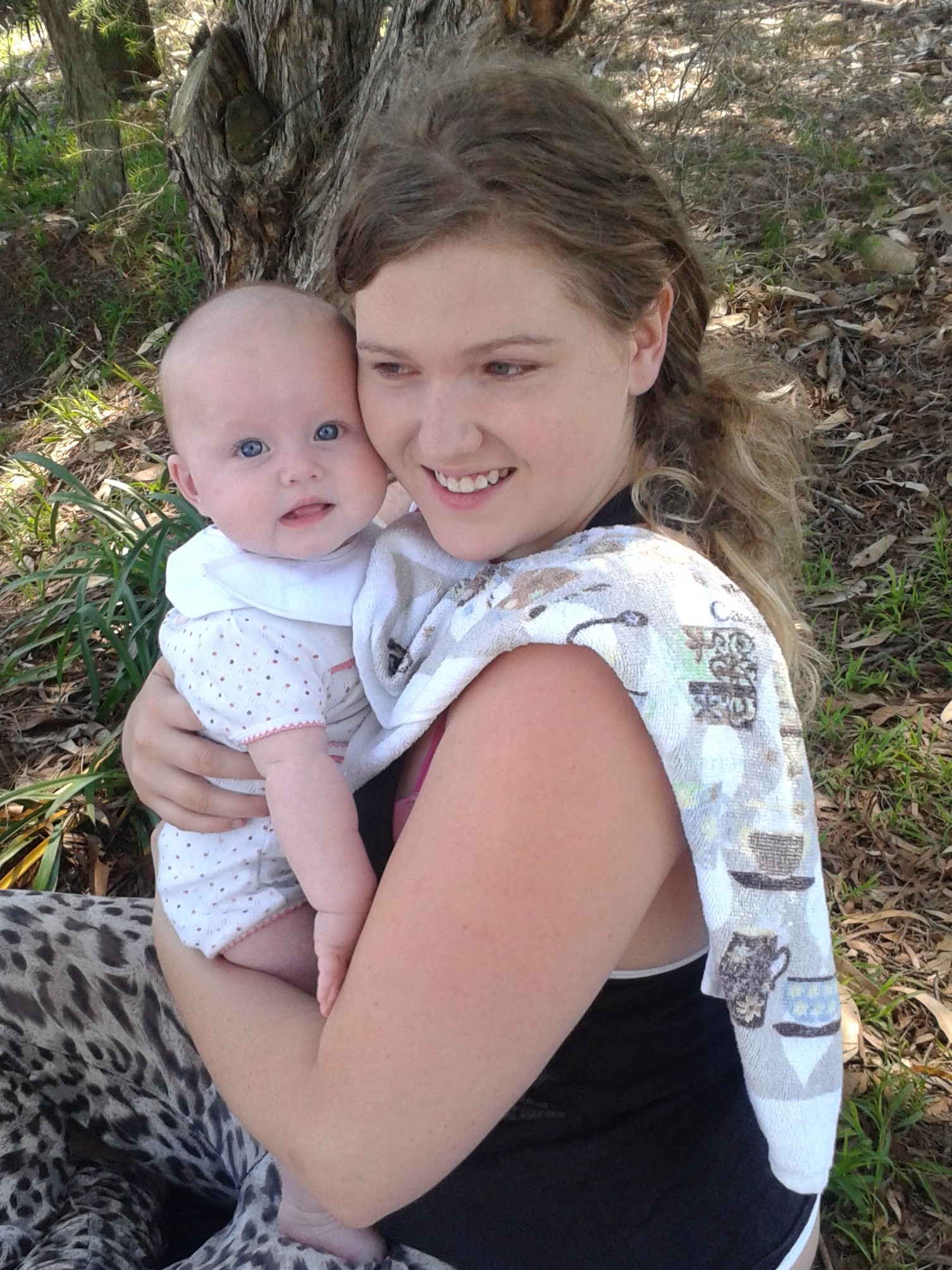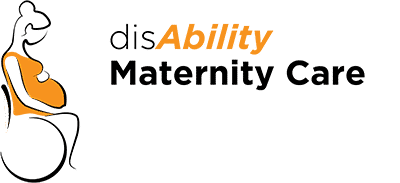
Mothers with an Intellectual Disability: Stigma, Family and their Support Networks
Most women can become mothers with the right support and care. My mission is to change the conversation to support parents with a difference, and to ensure recognition of mothering, regardless of whether those women have their children with them full-time, or some of the time. We never forget our mothers.
My interest in equitable healthcare began in Fiji when my brother needed an operation. I was nine years old and during a visit to the surgeon, I was entranced by the skeleton in his office and his tales of working as a doctor in Africa. Fast forward fifty years, and I’ve just graduated with a PhD in midwifery.
Growing up in Fiji and seeing the poverty and disadvantage of those around me shaped both my nursing and midwifery career. As a registered nurse undertaking a post-graduate Diploma in Tropical and Public Health, I worked with a team to conduct leprosy research in a small village in Papua New Guinea. It was like coming home. I knew I had found my calling.
This led to an opportunity to work and teach in East New Britain, a province of Papua New Guinea. Working alongside the nurses and providing clinics to families in rural communities, I realised the importance of midwifery. So, I moved back Australia to undertake midwifery training, and despite my intentions to return overseas, meeting my husband and becoming pregnant with our first baby changed my focus.
My second daughter has a disability, and I knew that staying in Australia was important in giving her the best opportunities in life.
My career has focused on social justice issues and reducing health disparities for disadvantaged groups of women and families. This has included a women’s health project for the Punjabi women of Woolgoolga, NSW, and the piloting of an Indigenous community midwifery project in Kempsey, NSW, which led to the development of the New South Wales Aboriginal Maternal Infant Health Strategy.
As my own daughters grew into womanhood, I became aware of the lack of reproductive services available for women with intellectual disability.
Even though support in disability has progressed over the last 20 years, there’s still stigmatisation and a noticeable lack of inclusion and support of women with a disability who want to become mothers, especially if they have an intellectual disability like my daughter.
There’s a perception that people with disability don’t have sex, let alone children.
PhD Journey In 2013, I began my PhD journey by researching maternity care for women with intellectual disability. For this work I received the prestigious Australian College of Midwives award ‘NSW Midwife of the Year’. The support and understanding from my supervisors, Dr Ann Taylor, Dr Lyn Ebert, and Dr Louise O’Brien, was invaluable. Both my daughters became mothers within eight weeks of each other, and both began their mothering journey with traumatic events. Without the support of my supervisors, I don’t think I would have made it through the difficult times. No amount of research prepared me for the intervention of Family and Community Services which resulted in the removal of my daughter’s baby at five days of age, into the care of my husband and me. My life was totally consumed by my PhD topic, not only researching the area, but also living it. |  | |
Dr Namira Williams |
 | Mothers with intellectual disability “Do you know what it’s like to look across the room and see an empty cot?” These were the words spoken by my daughter after she was sent home from maternity without her baby. Globally, 40 to 60 per cent of mothers with an intellectual disability have their babies or children removed from their care. While research exists on parenting children with intellectual disability, prior to my PhD there was no research into how women with intellectual disability experience the maternity system, or their care providers. Using a Grounded Theory research approach, I was able to develop an understanding of the social processes that influence how mothers with intellectual disability and providers interact, and why so many of these mothers have their babies removed from their care. | |
Namira's daughter Ellin |
My thesis ‘Travelling with two: balancing identity and risk in mothers with intellectual disability’ portrays the difficulties mothers face when they encounter health providers who have little understanding of intellectual disability, lack skills in adapting information to meet these mother’s needs or who have negative attitudes towards this group of women becoming mothers.
When women experience care from providers like this, they are unlikely to disclose their disability which means they don’t get the support they need. If they can’t trust those providing care for them, they are set up to fail.
To address these issues, I have provided the following seven key recommendations:
- Implementation of training programs which meet the needs of women with intellectual disability in their maternity journey
- Development of maternity care models that meet the needs of these mothers in pregnancy, including a known midwife in pregnancy, birth and an extended postnatal period
- Development of tools to enable providers to identify women with intellectual disability, where they would otherwise rely on self-disclosure
- Development of an audit tool to ensure all maternity units in Australia are ‘disability friendly”
- Changes to provider practice so that instances of child removal occur with transparency to the parents and significant others
- Development of policies and guidelines which reflect the importance of women with intellectual disability and their specific needs as a vulnerable group of maternity care consumers
- Ensure the above recommendations are developed and implemented in consultation with women with intellectual disability
disAbility Maternity Care
A key recommendation is the development of education and training for providers, which I am seeking to address through my own organisation: ‘disAbility Maternity Care’.
disAbility Maternity Care has already provided several webinars for members of the Australian College of Midwives, and has other specific skill development workshops planned for both health and disability providers.
If you would like to learn more about Namira’s work, or caring for mothers with intellectual disability, visit disAbility Maternity Care here.

The University of Newcastle acknowledges the traditional custodians of the lands within our footprint areas: Awabakal, Darkinjung, Biripai, Worimi, Wonnarua, and Eora Nations. We also pay respect to the wisdom of our Elders past and present.

